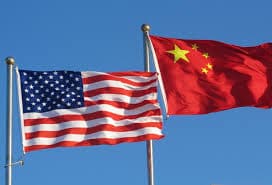How are companies are softening the Trump tariff blows?
Facing the onslaught of President Trump’s China Tariffs, importers are having to get creative in order to minimize the impact these higher duty rates will have on their goods.
Foreign Trade Zone / Bonded Warehouse / Tariff Engineering
Foreign Trade Zones (FTZ), approved by the U.S. government, can be a temporary haven for companies reducing duties on a case-by-case basis. Trade zones are not a loophole for goods destined for the U.S. market, but they can be a way for companies to avoid duties on goods shipped to the United States and subsequently re-exported to another country.
There are different types of zone designations depending on the end use of the goods; further manufacturing, packaging, comingling, etc. In any case, the duties are not paid out until the goods are exported out of the Trade Zone, either in-bond for re-export or destined for the U.S. market. Companies can utilize the zones to spread out those duty payments based upon the timing of the export from the zones. This can help manage huge import duty payments being paid at time of import to the U.S.
Bonded warehouses are another option. Firms can store and make products in “Customs-bonded” warehouses for up to five years. Duties are only applied once products leave the facility for consumption. Companies can apply to U.S. Customs for a license to operate a bonded warehouse.
According to a paper by law firm Barnes, Richards & Colburn, Tariff engineering also is making a comeback. Companies can tweak their design processes in order to be able the re-classify their goods under a lower duty rate. However, importers need to be very conscious of taking this too far, since Customs tends to reject revisions to existing HTS codes when companies appear to be making a “fictional or temporary product”.
To view the full article in Transport Topics (TTNews) “In Times of Trade War, Companies Get Creative to Avoid Tariffs”.
ARRANGE YOUR CUSTOMSNOW ABI SOFTWARE WALK-THROUGH
Meet with a CustomsNow consultant to explore your compliance practices and how our best-in-class software and services can help you do what you do better.
DEMO NOW